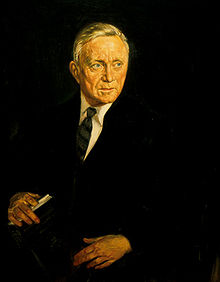Flash of Genius: A Review
Flash of Genius is a movie about patent infringement. It is the story of one man with a big idea whose life's work was stolen by a big, bad auto company. It is the tale of an obsessive dedication to the pursuit of justice, and how it can destroy a marriage. It is about the price of recognition and whether it is worth it. But we can also look at it another way: it's a story about bullying.

Robert Kearns invented the intermittent windshield wiper. He offered it to the Ford Motor Company. They decided not to buy his invention. They stole it instead.
Kearns spent most of his life fighting to get Ford to admit that the invention was his. They offered him many large settlements with the proviso that he keep silent about the theft, but he refused them all, and continued to fight relentlessly for justice to be done.
In the process, he lost his wife, and to some extent the respect of his children, and lived a very difficult and lonely existence. Although in time his children did rally round him and supported him in his legal battle, his wife never returned.
So the question is: was it worth it?

The source of the phrase "Flash of Genius"
The phrase "flash of genius" was coined by United States Supreme Court Associate Justice William O. Douglas. In Cuno Engineering v. Automatic Devices, 314 U.S. 84 (1941), he ruled: "The new device, however useful it may be, must reveal the flash of creative genius, not merely the skill of the calling."
The "flash of genius" test was eventually rejected for a more staid formulation in the patent law by a standard of non-obviousness. However, it remains an effective way of considering what entitles someone to a patent. It is not the hard work that went into the discovery that matters. It is the ingeniousness of the device.
I will return to this point a little later.
Greg Kinnear as Robert Kearns
Greg Kinnear is perfect in the role of Robert Kearns. The last time I saw him he was playing the long-suffering Luddite boyfriend of Kathleen Kelly in You've Got Mail. He was excellent in that role, too, although the part was very different. A man who prefers an IBM Selectric type-writer to a laptop is probably going to dislike an intermittent windshield wiper, when he could be perfectly happy with the old-fashioned model that has only two settings, on and off.
Kinnear's low-key performance gives Flash of Genius a realistic edge and prevents the movie from becoming overly sentimental in its portrayal of what has been dubbed by many reviewers the usual "David versus Goliath" plot that Hollywood loves so much.
Stand By Your Man
Lauren Graham as the Disloyal Wife
Believe it or not, I didn't discover Flash of Genius because I was looking for a movie about patent law or even intellectual property law in general. I wasn't thinking: hey, I'd like to see a movie about intermittent windshield wipers! I wasn't looking for a story about the little guy versus the big corporation. And, no, I wasn't looking for a movie starring Greg Kinnear.
I missed Gilmore Girls, and I was looking for something in which Lauren Graham appeared since that series went off the air. Well, in this movie, Lauren Graham gets to play the disloyal wife.
Now, don't get me wrong, we're not talking infidelity. At least not in the narrow sense in which that word has come to be used. I'm talking about disloyalty in the real sense. A husband is counting on his wife to support him in the great trial of his life, and she does not stand by her man.
When I was watching Lauren Graham in Flash of Genius, the lyrics to the Tammy Wynette song immediately came to mind. "...And if you love him, be proud of him, 'cause after all, he's just a man." The problem here was that he wasn't just a man. He was Robert Kearns, the inventor of the intermittent windshield wiper -- a man with a dream who was not willing to give up.
The wife was portrayed as loving, nurturing, a good mother and a "decent person", who was not willing to spend her entire life fighting the good fight. And she was not the only one.
One by one, all his friends deserted him.
Why does that happen? When we stand up to fight against a bully, why is it our friends tend to disappear?
What Kearns Wanted -- And What Ford Wanted
To give the Ford Motor Company credit, it was not really their plan not to pay Kearns. This is something that you're not going to see discussed in many other places. Ford intended to pay for the invention, and they were willing to pay quite generously, right from the start.
Kearns, for his part, was not fighting just for money. After he brought suit, he was offered millions in settlement money, and he turned them down.
So what was this fight really about? Like most struggles, it was about control.
Robert Kearns had a dream, and it didn't just involve inventing. He really wanted to be a manufacturer, just like Ford. He wanted to open the Kearns Company, and he planned to sell windshield wipers to all the major auto manufacturers.
The Ford Motor Company did not want to count on an inexperienced supplier. They would gladly have paid him in outright fees and royalties, but they wanted to be the ones making the product. When they saw that he would not be "reasonable", they took by stealth what they could not get by negotiating. They understood they would eventually have to pay for the use of the product. They just were not willing for Kearns to dictate the terms.
In other words, they by-passed his right to withhold consent.
Why People Didn't Support Kearns
Most people work for a living. Most people are not inventors. An inventor with a patent is not paid for his labor. He is paid for the ingeniousness of his thought process and the idea that it produces. Once a patent holder holds a patent, he is just like someone who owns a gold-mine. He is a property owner, only the property he owns is not material. It's intellectual property.
Almost everyone in Detroit, from the highest auto executives to the lowliest autoworkers, was paid a salary for working hours. A dollar amount was given in return for their time. But Robert Kearns wanted more. He wanted to be an owner and to pay other people for their time and to be paid for the products they manufactured under his supervision and control. He thought that by owning the patent he could dictate the terms under which it would be used.
People -- his friends, his wife, his colleagues -- did not really identify with Kearns' struggle, because it was not like any struggle they would ever face. Why was he turning down all that money? Why didn't he face reality? Maybe, secretly, they didn't even think he deserved the right to withhold consent.
After all, people need intermittent windshield wipers. What right had he to dictate the terms under which the public would get them?
I don't think this a David versus Goliath story. I think it's more like Atlas shrugging. Robert Kearns was not the little guy fighting the big corportation. He was not Everyman. He was a great man fighting the multitude of small men for the right to have the importance of his contribution and his personal sovereignty recognized.
What do you think? Who was right? Robert Kearns or everybody else?
(c) 2010 Aya Katz
Related Links and Hubs
- Are There Any Legitimate Companies That Help You With Your Invention?
This is in answer to the question: I have an idea for an invention and I am curious about these companies. It is very expensive to apply for a patent so I'm wondering if they are a rip off? After giving... - Greg Kinnear + Windshield Wipers = Oscar? | Autopia | Wired.com
In a world where windshield wipers had just two settings -- on and off -- one man had the courage to add a third position to the stalk... Universal has - Windshield Wipers History - Invention of Windshield Wipers
Fascinating facts about the invention of Windshield Wipers by Mary Anderson in 1903. - Robert Kearns - Wikipedia, the free encyclopedia
- Robert Kearns, Inventor of Intermittent Windshield Wipers and Battled Car Companies, Dies at 77
DETROIT February 25, 2005; The AP reported that Robert Kearns, the inventor of intermittent windshield wipers who won multimillion-dollar judgments against Ford and Chrysler for using his idea, has died. He was 77. Kearns died of cancer Feb. 9 at his
- JETS & BOATS FOR SALE
For those who have a lot to spend and know what they like.




